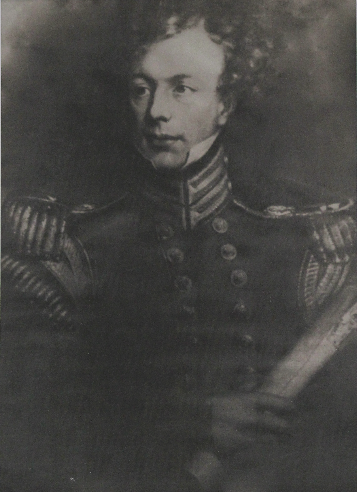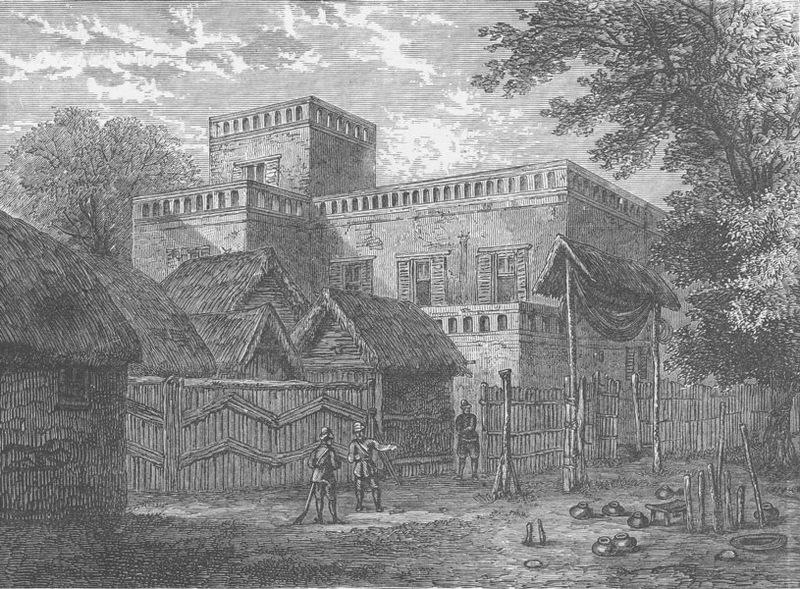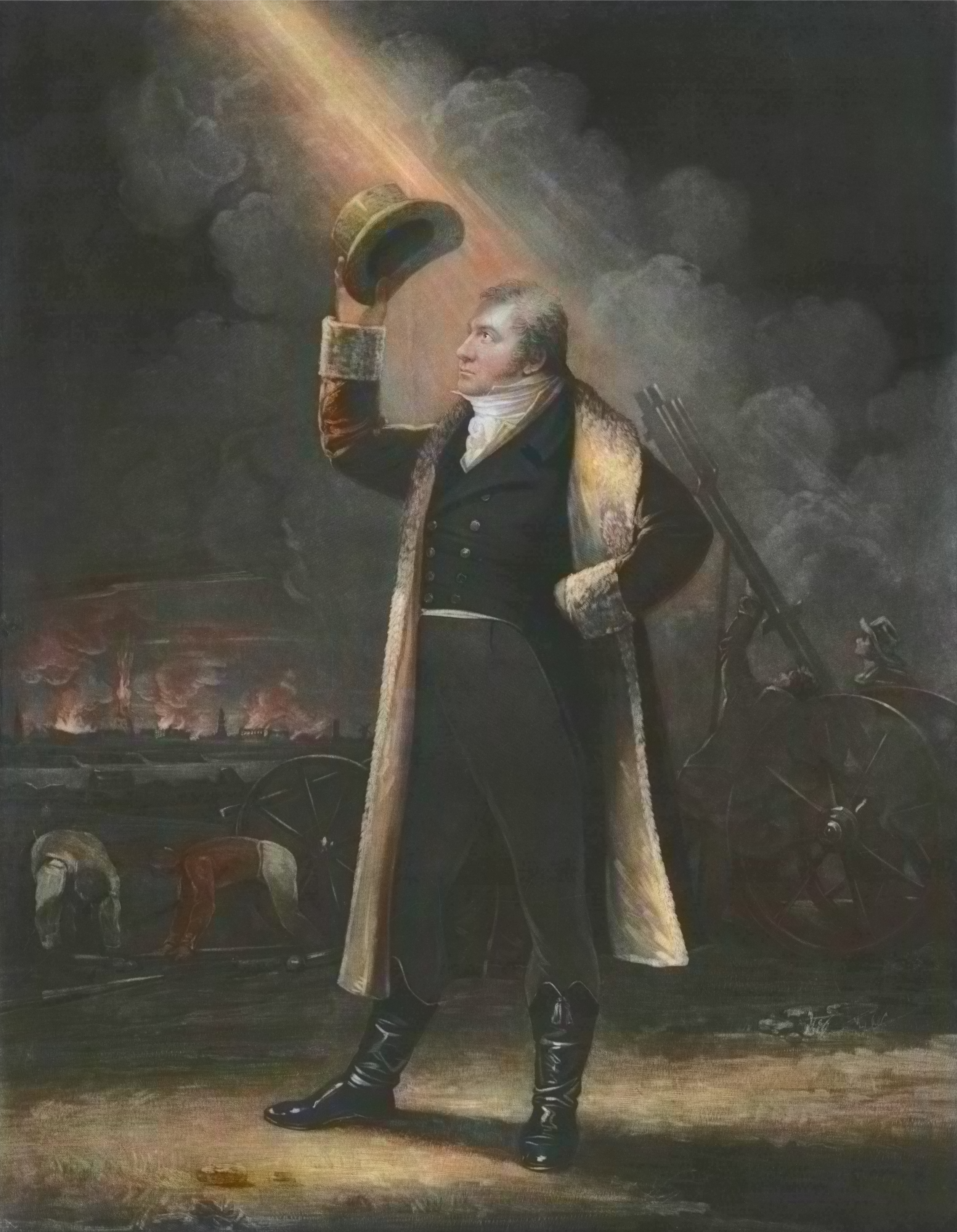|
Osei Yaw Akoto
Osei Yaw Akoto ( – 21 February 1834), was the seventh King of the Ashanti Empire reigning from 1824 until his death on 21 February 1834.T. C. McCaskie, ''State and Society in Pre-Colonial Asante'', Cambridge University Press, 2003, p. 69-70 Biography Immediately after his coronation, the Ashanti - who had won a crushing victory over a British army unit under his predecessor Osei Bonsu - were defeated by the British in July 1824. The Aschanti army had to withdraw to the capital Kumasi and the southern vassal states declared their independence. In 1826, the Ashantis suffered a second decisive defeat at Dodowa in another war with the British. Osei Yaw Akoto had launched his army into battle without sufficient preparation, and for the first time the British were using Congreve rockets as weapons. In 1831, the Ashantis, in a treaty with British Governor George Maclean, had to recognize the independence of their former vassal states in the south, and the Dagombas and Gonja in t ... [...More Info...] [...Related Items...] OR: [Wikipedia] [Google] [Baidu] |
List Of Rulers Of Asante
The is the title for the monarch of the historical Ashanti Empire as well as the Chieftaincy institution (Ghana), ceremonial ruler of the Ashanti people today. The Ashanti royal house traces its line to the Oyoko (clan), Oyoko (an ''Abusua'', or "clan") Abohyen Dynasty of Nana Twum and the Bretuo Dynasty of Osei Tutu, Osei Tutu Opemsoo, who formed the Empire of Ashanti in 1701 and was crowned Asantehene (King of all Asante). Osei Tutu held the throne until his death in battle in 1717, and was the sixth king in Ashanti royal history.Collins and Burns (2007), p. 140. The Asantehene is the ruler of the Ashanti people. The Asantehene is traditionally enthroned on a Golden Stool, golden stool known as the ''Golden Stool, Sika 'dwa'', and the office is sometimes referred to by this name.Asante empire ''Encyclopædia Britannica''. Retr ... [...More Info...] [...Related Items...] OR: [Wikipedia] [Google] [Baidu] |
Dagomba People
The Dagombas are a Gur ethnic group of northern Ghana, numbering more than 2.3 million people. They inhabit the Northern Region of Ghana in the sparse savanna region below the sahelian belt, known as the Sudan. They speak the Dagbani language which belongs to the Mole-Dagbani sub-group of the Gur languages. There are around 1 to 2 million speakers of Dagbani. The Dagomba are historically related to the Mossi people. The Mohi/Mossi now have their homeland in central present-day Burkina Faso. The homeland of the Dagomba is called Dagbon and covers about 20,000 km2 in area. Naa Gbewaa is regarded as the founder of Dagbon. Dagomba are one of the ethnic groups with a sophisticated oral tradition woven around drums and other musical instruments. Thus, most of their history, until quite recently, has been passed down via oral tradition with drummers as professional griots. According to oral tradition, the political history of Dagbon has its origin in the life story of a legend ... [...More Info...] [...Related Items...] OR: [Wikipedia] [Google] [Baidu] |
1800s Births
Eighteen or 18 may refer to: * 18 (number), the natural number following 17 and preceding 19 * one of the years 18 BC, AD 18, 1918, 2018 Film, television and entertainment * ''18'' (film), a 1993 Taiwanese experimental film based on the short story ''God's Dice'' * ''Eighteen'' (film), a 2005 Canadian dramatic feature film * 18 (British Board of Film Classification), a film rating in the United Kingdom, also used in Ireland by the Irish Film Classification Office * 18 (''Dragon Ball''), a character in the ''Dragon Ball'' franchise * "Eighteen", a 2006 episode of the animated television series ''12 oz. Mouse'' Music Albums * ''18'' (Moby album), 2002 * ''18'' (Nana Kitade album), 2005 * '' 18...'', 2009 debut album by G.E.M. Songs * "18" (5 Seconds of Summer song), from their 2014 eponymous debut album * "18" (One Direction song), from their 2014 studio album ''Four'' * "18", by Anarbor from their 2013 studio album '' Burnout'' * "I'm Eighteen", by Alice Cooper commonly r ... [...More Info...] [...Related Items...] OR: [Wikipedia] [Google] [Baidu] |
19th-century Monarchs In Africa
The 19th (nineteenth) century began on 1 January 1801 ( MDCCCI), and ended on 31 December 1900 ( MCM). The 19th century was the ninth century of the 2nd millennium File:2nd millennium montage.png, From top left, clockwise: in 1492, Christopher Columbus reaches North America, opening the European colonization of the Americas; the American Revolution, one of the late 1700s Enlightenment-inspired Atlantic Rev .... The 19th century was characterized by vast social upheaval. Slavery was abolitionism, abolished in much of Europe and the Americas. The Industrial Revolution, First Industrial Revolution, though it began in the late 18th century, expanding beyond its British homeland for the first time during this century, particularly remaking the economies and societies of the Low Countries, the Rhineland, Northern Italy, and the Northeastern United States. A few decades later, the Second Industrial Revolution led to ever more massive urbanization and much higher levels of productivit ... [...More Info...] [...Related Items...] OR: [Wikipedia] [Google] [Baidu] |
London
London is the capital and largest city of England and the United Kingdom, with a population of just under 9 million. It stands on the River Thames in south-east England at the head of a estuary down to the North Sea, and has been a major settlement for two millennia. The City of London, its ancient core and financial centre, was founded by the Romans as '' Londinium'' and retains its medieval boundaries.See also: Independent city § National capitals The City of Westminster, to the west of the City of London, has for centuries hosted the national government and parliament. Since the 19th century, the name "London" has also referred to the metropolis around this core, historically split between the counties of Middlesex, Essex, Surrey, Kent, and Hertfordshire, which largely comprises Greater London, governed by the Greater London Authority.The Greater London Authority consists of the Mayor of London and the London Assembly. The London Mayor is distinguished fr ... [...More Info...] [...Related Items...] OR: [Wikipedia] [Google] [Baidu] |
Basil Davidson
Basil Risbridger Davidson (9 November 1914 – 9 July 2010) was a British journalist and historian who wrote more than 30 books on African history and politics. According to two modern writers, "Davidson, a campaigning journalist whose first of many books on African history and politics appeared in 1956, remains perhaps the single-most effective disseminator of the new field to a popular international audience". Biography Early life Basil Davidson was born in Bristol, United Kingdom on 9 November 1914 and left school at 16 and moved to London. In 1938, he gained a job at the Paris correspondent of ''The Economist'' and later as the diplomatic correspondent of ''The Star''. He travelled widely in Italy and Central Europe in the 1930s. Wartime service Davidson was recruited by the Secret Intelligence Service (SIS) and MI6, D Section. As part of his Mission, he was sent to Budapest, Hungary in December 1939 under the cover of establishing a news service. In April 1941, with ... [...More Info...] [...Related Items...] OR: [Wikipedia] [Google] [Baidu] |
Ashanti People
The Asante, also known as Ashanti () are part of the Akan ethnic group and are native to the Ashanti Region of modern-day Ghana. Asantes are the last group to emerge out of the various Akan civilisations. Twi is spoken by over nine million Asante people as a first or second language. The wealthy, gold-rich Asante people developed the large and influential Ashanti Empire, along the Lake Volta and Gulf of Guinea. The empire was founded in 1670, and the capital Kumase was founded in 1680 by Asantehene (emperor) Osei Kofi Tutu I on the advice of Okomfo Anokye, his premier. Sited at the crossroads of the Trans-Saharan trade, the Kumase megacity's strategic location contributed significantly to its growing wealth. Over the duration of the Kumase metropolis' existence, a number of peculiar factors have combined to transform the Kumase metropolis into a financial centre and political capital. The main causal factors included the unquestioning loyalty to the Asante rulers and the Kum ... [...More Info...] [...Related Items...] OR: [Wikipedia] [Google] [Baidu] |
Gonja People
Gonja (also Ghanjawiyyu, endonym Ngbanya) was a kingdom in northern Ghana founded in 1675 by Sumaila Ndewura Jakpa. The word can also refer to the people of this kingdom. Origin The Gonja are a Guan people who have been influenced by Dagbon, Akan, Mande and Hausa people. With the fall of the Songhai Empire (c. 1600), the Mande Ngbanya clan moved south, crossing the Black Volta and founding a city at Yagbum. The Gonja kingdom was originally divided into sections overseen by male siblings of Sumaila Ndewura Jakpa including their children and grandchildren. Under the leadership of Naba'a, the Ngbanya dynasty of Gonja was founded. The capital was established at Yagbum. The Ngbanya expanded rapidly, conquering several neighbors in the White Volta valley and beginning a profitable gold trade with the Akan states through nearby Begho. By 1675, the Gonja established a paramount chief, called the Yagbongwura, to control the kingdom. The Ngbanya dynasty has controlled this positio ... [...More Info...] [...Related Items...] OR: [Wikipedia] [Google] [Baidu] |
George Maclean
George Maclean (24 February 1801 – 22 May 1847) was Governor of Gold Coast, now in Ghana, from 1830 until 1844. Life Born in Keith, Banffshire, Scotland, he was the son of the minister, Rev, James Maclean, and his wife Elizabeth Tod, daughter of George Tod of Elgin. In the period 1815–7 he was an ensign in the 27th Foot, and then in the 91st Foot. In poor health, he retired from the Army in 1821. Maclean was a member of the Royal African Colonial Corps, stationed in British West Africa from 1826 until 1828. In 1830 he became the Governor of Cape Coast, a position he retained until 1844. In 1842 he was investigated by Richard Robert Madden, following the 1839 discovery by activists that British merchants operated from the Gold Coast were supplying slaving vessels. Madden found that Maclean had unfairly imprisoned 91 local people, some for as long as four years, on dubious grounds and without even the formality of a trial; and he also reported that Maclean illegally claimed ... [...More Info...] [...Related Items...] OR: [Wikipedia] [Google] [Baidu] |
Osei Bonsu
Osei Bonsu (born 1779 – 21 January 1824) also known as Osei Tutu Kwame was the Asantehene (King of the Ashanti). He reigned from 1804 to 1824. During his reign the Ashanti fought the Fante confederation and ended up dominating Gold Coast trade. In Akan, Bonsu means whale (the largest and most powerful "fish" in the sea), and is symbolic of his achievement of extending the Ashanti Empire to the coast. He died in Kumasi, and was succeeded by Osei Yaw Akoto. Other sources refer to him as Osei Tutu Kwame. He was a leader in war against the Fante of the southern Gold Coast in 1806–07 and against Gyaman in 1818–19. He also stood up against the British and fought them from looting gold and other resources from Ghana. He cut off the head of Sir Charles Machartty, the British governor at the time in Ghana and was also killed by the British. Reign An Annal was written in Arabic by Muhammad al-Mustafa from Gonja people, Gonja on the history of the ruling Oyoko (clan), Oyoko dynas ... [...More Info...] [...Related Items...] OR: [Wikipedia] [Google] [Baidu] |
Congreve Rocket
The Congreve rocket was a type of rocket artillery designed by British inventor Sir William Congreve in 1808. The design was based upon the rockets deployed by the Kingdom of Mysore against the East India Company during the Second, Third, and Fourth Anglo-Mysore Wars. Lieutenant general Thomas Desaguliers, colonel commandant of the Royal Artillery at Woolwich, was impressed by reports of their effectiveness, and undertook several unsuccessful experiments to produce his own rocket weapons. Several captured Mysorean rockets were sent to England following the annexation of the Mysorean kingdom into British India following the death of Tipu Sultan in the siege of Seringapatam. The project was continued chiefly with William Congreve, who set up a research and development programme at the Woolwich Arsenal's laboratory. After development work was complete the rockets were manufactured in quantity further north, near Waltham Abbey, Essex. He was told that "the British at Seringapa ... [...More Info...] [...Related Items...] OR: [Wikipedia] [Google] [Baidu] |
British Empire
The British Empire was composed of the dominions, colonies, protectorates, mandates, and other territories ruled or administered by the United Kingdom and its predecessor states. It began with the overseas possessions and trading posts established by England between the late 16th and early 18th centuries. At its height it was the largest empire in history and, for over a century, was the foremost global power. By 1913, the British Empire held sway over 412 million people, of the world population at the time, and by 1920, it covered , of the Earth's total land area. As a result, its constitutional, legal, linguistic, and cultural legacy is widespread. At the peak of its power, it was described as "the empire on which the sun never sets", as the Sun was always shining on at least one of its territories. During the Age of Discovery in the 15th and 16th centuries, Portugal and Spain pioneered European exploration of the globe, and in the process established large overse ... [...More Info...] [...Related Items...] OR: [Wikipedia] [Google] [Baidu] |







